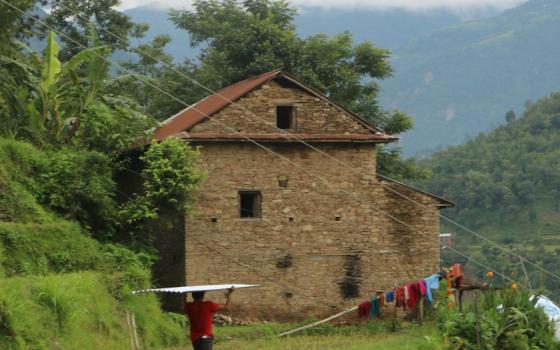For a moment, it appeared that peace may at last come to South Sudan.
But only for a moment.
On Wednesday, President Salva Kiir signed a peace deal with rebels, seemingly bringing an end to the 20-month conflict that has killed thousands, displaced millions and left the population hungry. But Kiir immediately said he had reservations about the agreement, which called for a power-sharing transitional government within 90 days and a cease-fire within 72 hours.
Within hours of the signing, fighting had again broken out, and by Friday both sides were accusing the other of new attacks.
Will this new agreement hold? Seven previous cease-fire deals have not.
The BBC reports the conflict has left South Sudan with a “war economy,” where money is scarce and prices are high. Oil production, the nation’s biggest source of income, has been cut in half, and the oil that does get out brings in less money due to low prices and the fees paid to Sudan for transporting it through its pipelines.
And Immaculate Heart of Mary Sr. Joan Mumaw reports that the situation is much more complicated that simply a conflict between the government and insurgents. Mumaw is the U.S. regional development director for Solidarity With South Sudan.
“The power struggle between the leaders is rapidly becoming ‘ethnic warfare,’ as traditional hostilities are exploited by rival factions,” Mumaw writes.
How bad is the situation? Mumaw says 600,000 have been added to the 2 million already displaced, and 40 percent of the population — 4.6 million people — is facing food insecurity and possible famine.
Displacement will have long-term effects, she says: Displaced people are not in their own homes during the rainy season when they usually plant crops, so they won’t be able harvest food in the next few months. On top of that, roads are impassable, making it difficult to bring emergency foodstuffs to those most in need.
“The economy is in free-fall and the lack of foreign exchange, resulting from the financing of the war and the decline in the price of oil, means that essential goods that must be imported are not being brought into the country,” she says.
And yet, Mumaw reports, there is good news, too.
She says the South Sudan Council of Churches, which was a strong voice in earlier peace processes, is re-energizing itself with new leadership. The council recently returned from a retreat in Rwanda where leaders learned how the churches in Rwanda dealt with the genocide that divided that country in the 1990s. They have expressed their unity and issued a “solemn statement of [their] intent to achieve peace and reconciliation for [their] beloved nation,” asked forgiveness for their failures, and pledged to bring about a homegrown solution for peace and reconciliation.
A different kind of adventure
We all know this, but it always bears repeating: When a natural disaster strikes, the need for help continues long after the breaking news reports stop.
Take the devastating earthquake that struck Nepal April 25, killing nearly 9,000 people and destroying more than 600,000 buildings, including homes and schools.
The television cameras may have left, but Catholic Relief Services has not: To date, CRS has distributed critical shelter materials, living supplies, blankets, food, water treatment and hygiene kits to 101,445 people in 20,289 families.
Getting aid to people in remote areas wasn’t easy to begin with. And then the monsoons began, washing out roads and cancelling helicopter flights of critical cargo.
“Families continue to live under basic tarps, tin sheeting or simple materials outside their destroyed homes, with minimal protection from the elements,” CRS reports.
What to do? CRS and its partner Caritas hired the Nepalese trekkers who usually take tourists on adventures.
“The trekkers maneuvered daunting Himalayan terrain so CRS could set up camp and establish operations. They drove up steep mountainsides with no roads, and helped identify safe routes for the transportation and distribution of supplies. The trekkers also communicated GPS points with the U.N.'s World Food Program for the landing and takeoff of its cargo helicopters,” CRS reports.
Where there’s a will, there’s a way.
Remember, links, tips and accounts of the response to any crisis anywhere in the world are always welcome at dstockman@ncronline.org.
[Dan Stockman is national correspondent for Global Sisters Report. Follow him on Twitter @DanStockman or on Facebook.]

